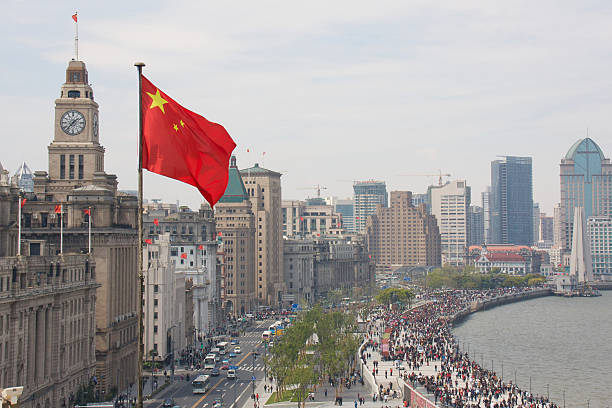China Vows More Pro-Growth Policies as Banks Urged to Step Up
Beijing ratcheted up calls to boost China’s Covid-battered economy, with the nation’s finance minister saying more pro-growth policies are being studied and a newspaper affiliated with the Cabinet urging banks to step up lending for infrastructure projects.
The government will further accelerate fiscal spending as well as the sale of special local government bonds, Finance Minister Liu Kun said Tuesday during a meeting of the standing committee of the National People’s Congress, according to a report by the Xinhua news agency. Special local bonds are mainly used for financing infrastructure investment.
The authorities are studying new policy tools to support the economy, Xinhua cited Liu as saying in a separate report. They are also planning to front-load stimulus, accelerate the implementation of existing policies and enhance the adjustment of macro policies as part of efforts to keep economic growth within a reasonable range, he said.
China has ramped up infrastructure investment and offered massive tax relief for businesses this year to offset a slump in the economy triggered by Covid outbreaks and lockdowns, an ongoing housing market crisis, and weak consumer demand. President Xi Jinping promised an “all out” effort to boost infrastructure investment, and the sale of special local bonds has been sped up to fund the drive.
Fast Issuance
China speeds up special local bond sales to fund infrastructure investment
The need to boost infrastructure spending and the squeeze on government income due to the tax breaks and falling land sales have fueled calls for the government to sell more bonds or grant more credit to target areas in the economy to ensure growth, which Beijing has set a target of around 5.5% for this year.
“We do think there’s a possibility of issuing special treasury bond later in the year mainly to bridge the budget gap,” said Betty Wang, senior China economist at Australia & New Zealand Banking Group Ltd. She expects up to 2 trillion yuan ($298 billion) of such debt to be sold.
Liu made the comments to the NPC standing committee while reporting on the outcome of the 2021 central government budget. The legislators are meeting this week to review revisions to a slew of laws including the Anti-Monopoly Law, according to the agenda.
The remarks echoed a pledge by China’s top leaders in late April to “waste no time in planning more policy tools and enhancing the strength of adjustment in due course” as they aimed to stabilize the economy while also containing the outbreak.
The new measures could include increasing targeted lending to certain sectors, said Liu Peiqian, chief China economist at NatWest Group Plc. However, this would only likely be sufficient to “stabilize growth at around 5% in the second half of the year” — insufficient to meet the target for the whole year.
The economy had a mixed recovery last month, with production unexpectedly rebounding while consumer spending and the property market continued to shrink. The continuing flareups of the highly-transmissible omicron variant in Chinese cities and Beijing’s reliance on lockdowns and other restrictions to tackle it are likely to put the growth target further out of reach.
Separately, the Economic Daily, a newspaper affiliated with the State Council, said in a front-page commentary Wednesday that banks should step up funding support for infrastructure projects to help stabilize growth. A number of water conservation and rural road renovation projects unveiled recently by the State Council, China’s Cabinet, will require assistance from the financial system, it said.
Policy banks should make good use of the 800 billion yuan loan quota granted by the State Council, and optimize their lending approval process in accordance with the principle of low-profit margins in order to help projects start early. The article was written under the pen name Jin Guanping, which indicates it represents the paper.
Large state-owned commercial lenders should provide medium to long-term credit support for indirect financing of the projects, and smaller banks should meet the funding demand of small firms in the upstream and downstream sectors relevant to the projects, it added.
— With assistance by John Liu, Fran Wang, and Xiao Zibang
Bloomberg



